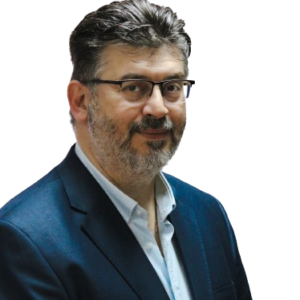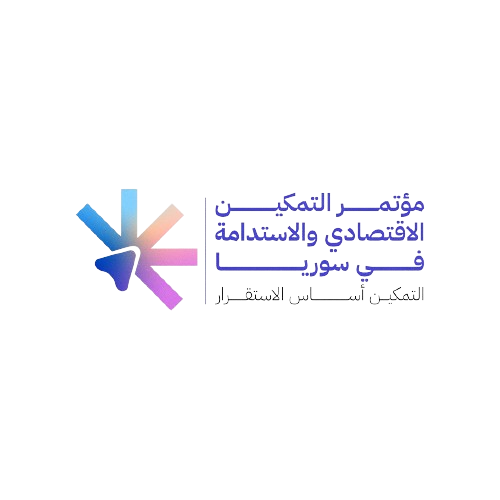The main topics of the session
The role of united nations, Arab, and international organizations in shaping the future of conflict-affected regions.
Strategies of organizations in supporting development projects and early recovery efforts.
The form of the economic system that serves the basic needs of conflict-affected communities.
Speakers:
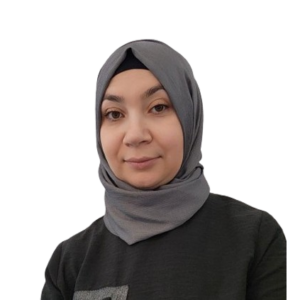
د.ريم اندرون
Technical Manager - SAMS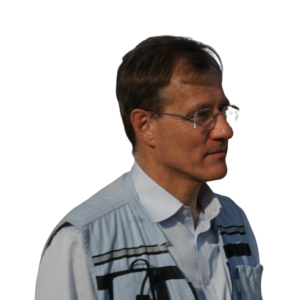
David Carden
Deputy Regional Humanitarian Coordinator - UN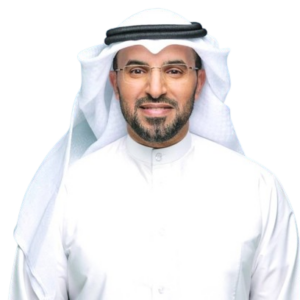
Saad Marzok Al-Otaibi
Chairman of the Federation of Kuwaiti Charitable Societies and Organizations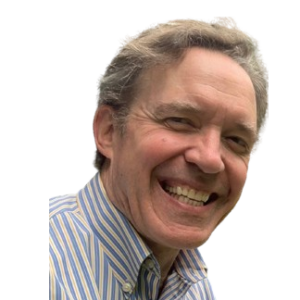
David Savard
Senior Program Coordinator - IOM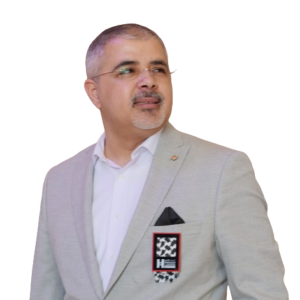
Mohamed Ramadan
Head of development programs- IICOThe main topics of the session
The role of strategic partnerships in enhancing sustainability in conflict areas.
The vision of sponsoring entities and their vital role in supporting development projects and economic empowerment.
Experiences of sponsoring organizations in implementing development programs and their tangible results on the ground.
The cooperation and integration offered by sponsoring organizations and their role in shaping a pioneering model towards stability and sustainability of services.
Speakers:
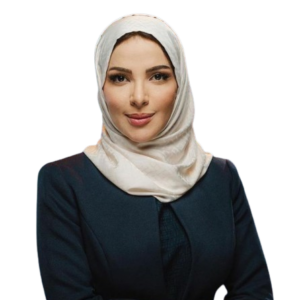
Alaa Hashem
Presenter of news and programs on Syria TV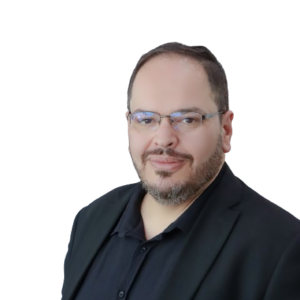
HALİT İSAOĞLU
General Director - Ataa Humanitarian Relief Association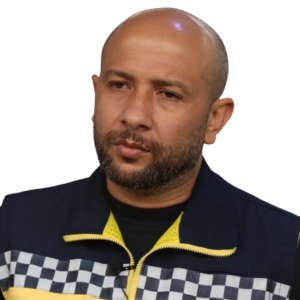
Raed Al Saleh
Director of the Syrian Civil Defense Foundation (White Helmets)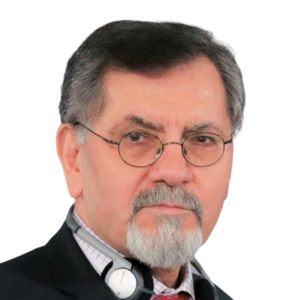
Samir Seifan
Manager of the Harmon Center for Contemporary Studies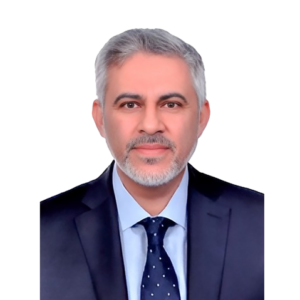
Abdullah Sibai
Director of the White Hands Association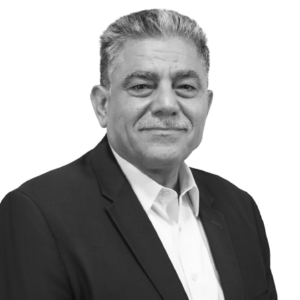
Ghassan Hitto
CEO of the Syrian Forum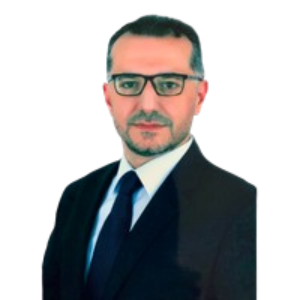
Dr. Mazen Kewara
Middle East RD- SAMS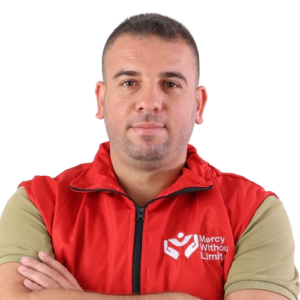
Mhd Ammar Bani Almarjeh
CEO - Mercy Without LimitsThe main topics of the session
How neighboring countries and the international community collaborate with local communities in northern Syria to achieve development and stability.
The importance of bilateral and multilateral partnerships to ensure the engagement of all parties in a support system that contributes to laying the foundations for economic and social stability.
The potential regional and international contribution to development through supportive empowerment initiatives.
The strategic importance of Turkey and the international community in facilitating and supporting the process of economic recovery and empowerment in northern Syria.
Speakers:
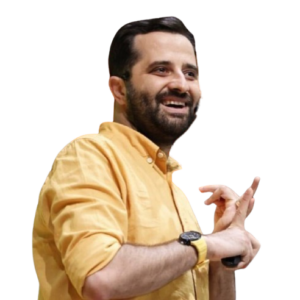
Yavuz Yiğit
Director of the Harmony Project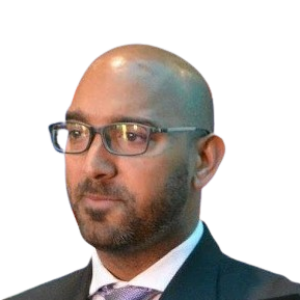
Dr. Edward Gonzalez
Supervisory Democracy and Governance Officer - USAID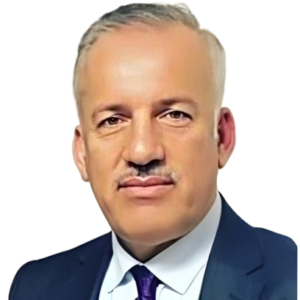
Mehmet Sıddık Yıldırım
Turkish researcher interested in Arab affairs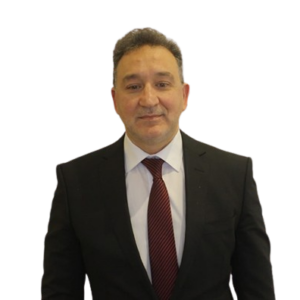
Dr. Basem Hatahet
Director of the European Institute for Political Initiatives and Strategic Analysis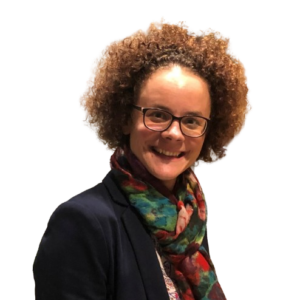
Manuela Oettinger
Head of Project - GIZThe main topics of the session
What are the effective strategies to achieve integration between the telecommunications, financial, and logistics sectors in supporting the local economy?
How can innovative banking transactions enhance the flexibility of businesses and startups?
What is the role of legislation and legal systems in facilitating integration between these sectors and supporting the economic environment?
In what ways can logistics infrastructure be developed to contribute to sustainable development?
What are the main challenges facing the construction of an integrated economic system and how can they be overcome?
Speakers:
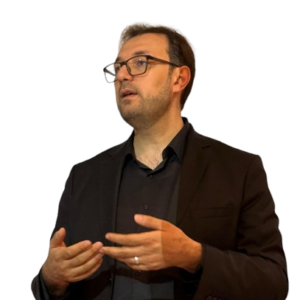
Ahmad Alzeer
Institutional leadership and digital transformation consultant - CEO of Digi Steps Company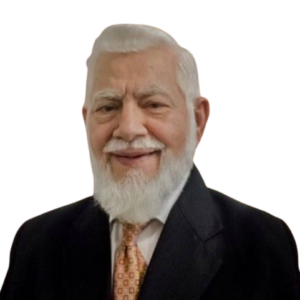
Dr. Monzer Kahf
Doctor of Economics - İstanbul Sabahattin Zaim University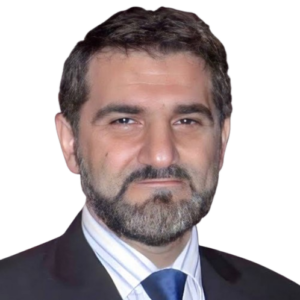
DR. MUHAMMAD AMIN ALI QATTAN
Academic and Economic Consultant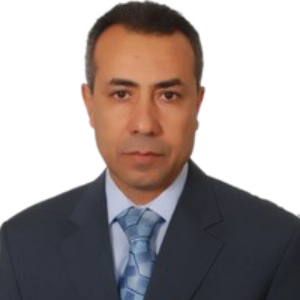
Dr: Abdul Hakim Hussein Al-Masry
Minister of Finance and Economy - SIG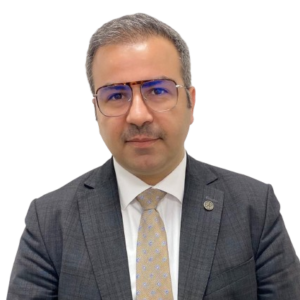
Lokman Saraçoğlu
Manager of Ziraat Katılım Bank - Kayaşehir Branch - IstanbulSecond Day 24/05/2024
The main topics of the session
The crucial role of capacity building and self-reliance.
The significant role of partnerships and various contributions in stimulating and enhancing development potentials by building effective partnerships in the local community and the active forces within it, as well as building partnerships between the local community and external investors and partners.
The role of various contributions in building partnerships between the local community, investors and external partners
Creating job opportunities and generating income allows the residents of these areas the possibility of self-reliance and sustainable growth.
Speakers:
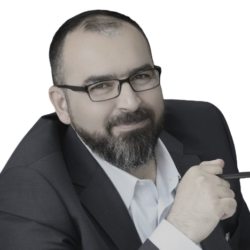
Dr. Yahya Sayed omar
Head of the Trends Center for Economic Studies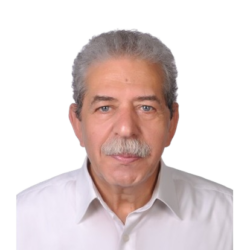
DR. Nabil Marzouk
Economic researcher - Harmon Center for Contemporary Studies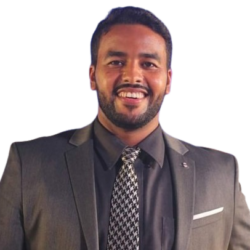
Swar Dahab
Producer and presenter of the Imran program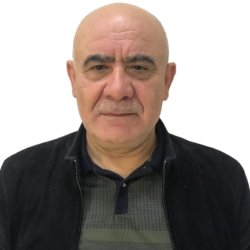
AHMAD ACHAWI
President of the Federation of Commerce Chambers in Northern Syria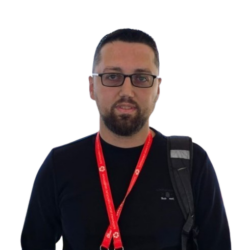
Mohamad Ayman Hamvıeh
Founder of Syria Makarna Company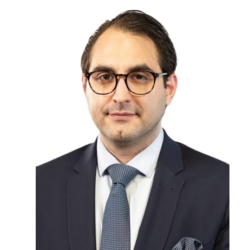
DR. Sinan Hatahet
Deputy Director of the Syrian ForumThe main topics of the session
The importance of supporting sustainable agricultural practices that preserve the environment and natural resources, and contribute to improving agricultural productivity in the long term.
The importance of modernizing and developing the agricultural infrastructure in Syria
The importance of marketing agricultural products. And the proposed ideas to support the marketing and promotion of Syrian agricultural products.
Methods to enhance educational programs in agriculture and raise awareness about sustainable agricultural practices among farmers, to ensure the adoption of best practices and techniques in crop cultivation.
The importance of investing in modern agricultural technology and supporting innovation in agricultural production.
Speakers:
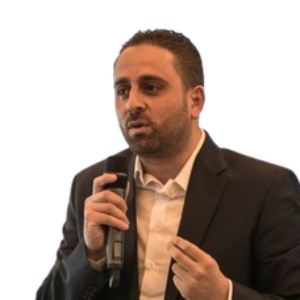
Dr. Ahmed Ekzayez
Program Manager - White Helmets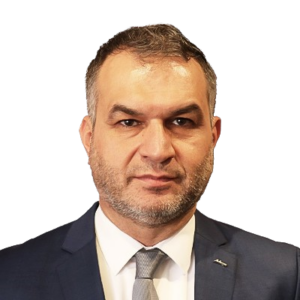
Mouhamad Hassno
Executive Director of the ACU Support Coordination Unit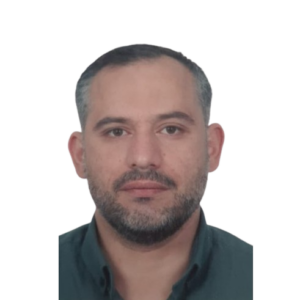
Safwan Alhaiek
Program Coordinator - Ataa Association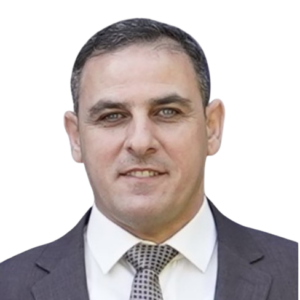
Dr. Anas Alkaddour
Senior Food Security and Livelihoods Technical Advisor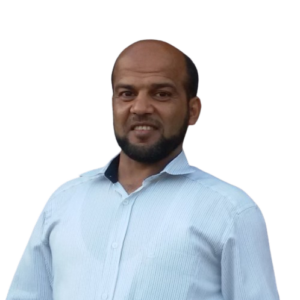
Akram BOURGOL
Agricultural ExpertThe main topics of the session
The vital relationship between education, infrastructure rehabilitation, and governance as fundamental pillars for achieving sustainable economic development to reduce reliance on international aid.
The importance of rehabilitating basic infrastructure in supporting economic growth.
الاستراتيجيات والبرامج الناجحة التي تدعم الأساس لنمو اقتصادي شامل يركز على بناء النظم الصحية المتينة وتوفير الرعاية الصحية الشاملة، وتوفير التعليم الطبي الأكاديمي للشباب والكوادر الطبية.
ولوجيا الزراعة الحديثة ودعم الابتكار في الإنتاج الزراعي.
Speakers:
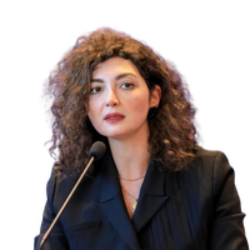
Nour H. Murad
Director of Public Relations - Syria TV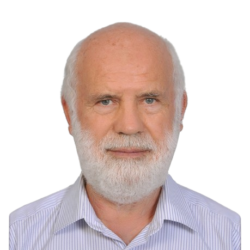
DR. Jalal Eddin Khanji
Chairman of the Board of Trustees of the University of Aleppo in the Liberated Areas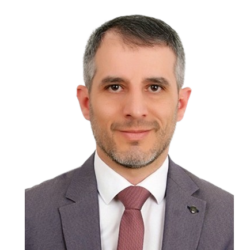
Dr. Mustafa KADAD
Advisor to the President of Mardin Artuklu University for International Relations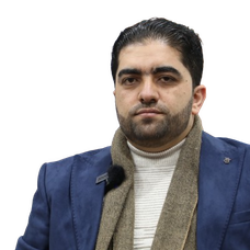
Dr. Zuhair Al-karrat
Director of Idlib Health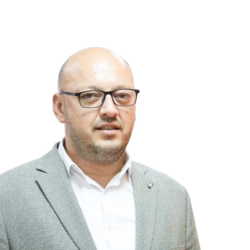
Dr. Bachir Tajaldin
Country Director of the Syrian American Medical Society Foundation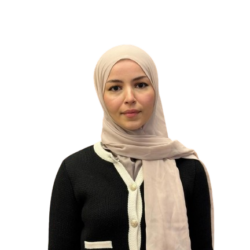
Fatimah Elfeitori
Senior Advocacy Officer - The White HelmetsThe main topics of the session
Challenges of legal and economic regulations with the nature of fragile communities.
The importance of financing small projects between grants and bank loans.
The difference between financing small projects and financing entrepreneurship.
Speakers:
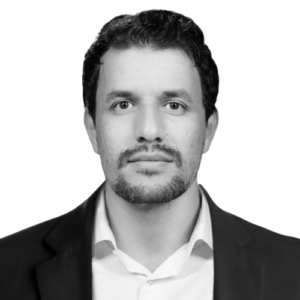
Munaff Koman
Economic researcher - Omran Center for Strategic Studies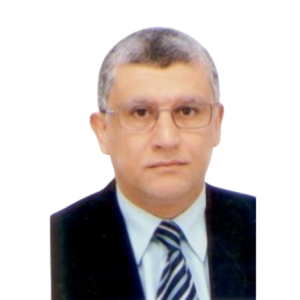
ANASSE EL HASNAOUI
Head of 4us Consulting Group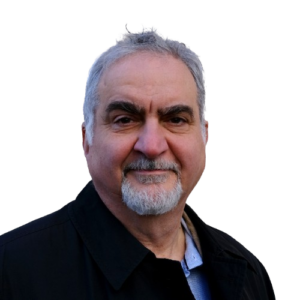
Eng. Omar Abdulaziz Hallaj
Co-Founder of the development consulting firm Logarit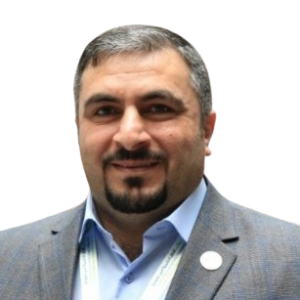
Mohammad Almohammad Albaha
Executive Director of Hayat Microfinance Fund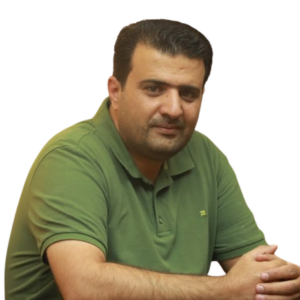
Hussam Hlaak
Deputy Director General of Support Operations - White HelmetsThe main topics of the session
Inspiring economic success stories from countries that have overcome the challenges of war.
Presentation of innovative strategies pursued by these countries to enhance economic development.
How to apply the lessons and experiences of these countries in the Syrian context.
Speakers:
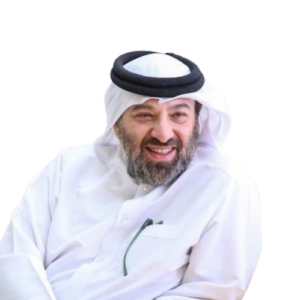
Khaled N.DIAB
Consultant in the field of humanitarian and development work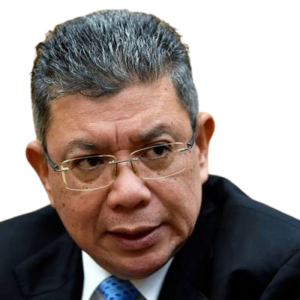
SAIFUDDIN ABDULLAH
Former Malaysian Minister of Foreign Affairs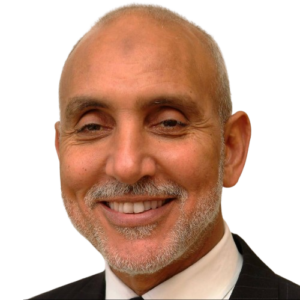
Dr Hany ElBanna
Founder of the International Islamic Relief Organization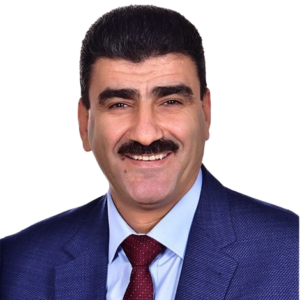
Nawwaf Atawneh
Economic Empowerment ExpertThe main topics of the session
Reviewing practical experiences that have ensured sustainability in supporting the healthcare sector.
How can technology be utilized to create effective financing systems?
How can the healthcare sector transition from being purely humanitarian to a developmental sector to achieve sustainability?
Speakers:
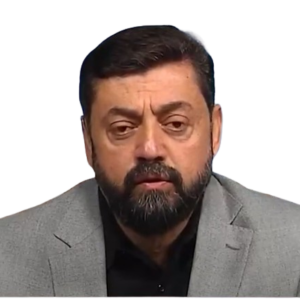
Dr. Aref Razouk
CEO of Shafak Organization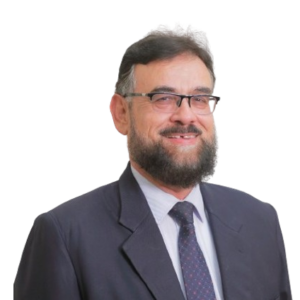
Prof. Abdul Bari Khan
Founding President of Indus Hospital & Health Network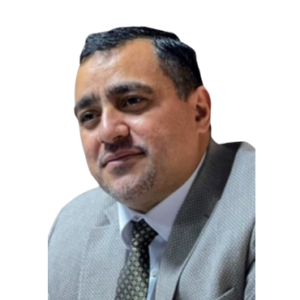
Dr. Muhammad Zahid Al-Masry
CEO of Physicians Across Continents